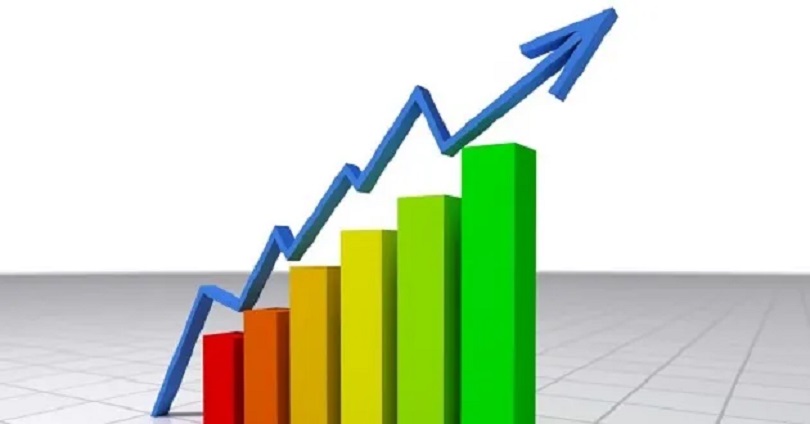Economy
Heavy Taxes, Levies Making Nigeria Pariah to Investment—NECA DG

By Adedapo Adesanya
The Director-General of Nigerian Employees Consultative Association (NECA), Mr Adewale-Smatt Oyerinde, has said organised businesses are bleeding and continue to struggle for survival, and could make Nigeria a pariah to investment.
This is as he urged the federal government to urgently suspend the astronomical increase in excise duty and the introduction of new taxes and levies across the board.
Mr Oyerinde, according to the News Agency of Nigeria, said that the suspension of the increase was imperative as “The Road-map as previously agreed on Excise should be adhered to, in the spirit of policy consistency.
“The increases, if implemented, will be counter-productive as it will aggravate the current rate of unemployment, encourage smuggling and discourage Foreign Direct Investment (FDI).
“It will also reduce the purchasing power of Nigerians and actively promote the relocation of businesses to other countries (Corporate-Japa).
“With the multi-dimensional challenges currently faced by organised businesses, a gift that Nigerians do not want is an increase in taxes.’
He also said that government should not leave behind a legacy of tax burdens that would endanger the fragile growth achieved in the economy on the altar of revenue generation.
He, however, advised the government to reappraise its adherence to the principles and spirits of fiscal discipline as enshrined in various legislations.
According to Mr Oyerinde, with over 60 different taxes, levies and fees paid by businesses annually in Nigeria, “we are fast becoming a pariah state to investors.”
“As the Voice of Organised Business in Nigeria and a critical stakeholder in Nigeria’s economic renaissance, we reaffirm our commitment to decent work, responsible enterprises and the protection of workers and enterprise rights through all legal and legitimate means.
The NECA boss also felicitated with the Nigerian workers as they celebrated the 2023 International Workers Day with the theme “Worker’s Rights and Socio-economic Justice”.
He said that the theme was apt as workers had continued to contribute to the economic and socio-political progress all over the world and Nigerian in particular.
“As the global economy continues to witness disruptions coupled with political upheaval in many regions, the need to continue to protect not only workers’ rights but also human and Enterprise rights cannot be over-emphasised.
“Worker’s rights encompass a range of issues, including living wages, decent work, access to medical care, safety and health at work, bridging gender gaps, and freedom from discrimination.
“These rights thrive in an environment that promotes socio-economic justice. All these are in the different International Labour Organisations (ILO) fundamental instruments, which Nigeria is a signatory to,’’ he said.
Mr Oyerinde added that it is a time of deep reflection on the state of the struggle across the past, present, and possible future.
According to him, this reflection will give us a clear scorecard of how we have really managed the struggle.
“This includes the struggle for enterprise’s sustainability and competitiveness, wealth creation and equitable distribution, and an environment where social and economic justice is guaranteed.
“As we appraise the past and navigate a path towards the future, we urge organised Labour and indeed all stakeholders that no effort should be spared in promoting and defending Institutions that have been created to advance Industrial Harmony and Social Dialogue.
“We must continue to deepen our engagement through Social Dialogue with the view of leaving a long-lasting legacy of productivity, equitable distribution of wealth and social justice for generations unborn,’’ he said.
He also called on the Organised Labour to continue to partner to advocate for a hospitable business environment that would ensure equitable distribution of wealth for the collective good.
Mr Oyerinde commended the government and other Social Partners on the recent approval of the draft Labour Bills by the Federal Executive Council (FEC).
“We urge expeditious action that will facilitate the passage of the Bill within the shortest possible time,‘’ he said.
Economy
Strong Investor Sentiment Keeps NGX Index in Green Territory by 0.31%

By Dipo Olowookere
The Nigerian Exchange (NGX) Limited remained in the green territory on Wednesday after it rallied by 0.31 per cent on the back of sustained bargain-hunting activities by investors.
Business Post reports that all the key sectors of the market closed higher at midweek as a result of the renewed interest in local equities.
Data showed that the energy index appreciated by 2.59 per cent, the insurance space grew by 2.34 per cent, the industrial goods sector improved by 0.15 per cent, the banking counter expanded by 0.06 per cent, and the consumer goods industry rose by 0.04 per cent.
At the close of business, the All-Share Index (ASI) gained 302.71 points to settle at 98,509.68 points compared with Tuesday’s closing value of 98,206.97 points and the market capitalisation added N183 billion to close at N59.715 trillion versus the preceding day’s N59.532 trillion.
It was observed that the level of activity yesterday waned as the trading volume, value and number of deals decreased by 65.93 per cent, 49.22 per cent, and 12.70 per cent, respectively.
On Wednesday, a total of 320.1 million stocks valued at N6.5 billion were transacted in 7,943 deals, in contrast to the 939.4 million stocks worth N12.8 billion traded in 9,098 deals.
The busiest equity at midweek was eTranzact, which transacted 70.3 million units for N474.2 million, Universal Insurance traded 23.8 million units worth 8.1 million, Zenith Bank exchanged 21.2 million units valued at N933.5 million, FBN Holdings sold 18.6 million units worth N491.2 million, and UBA traded 14.0 million units valued at N465.8 million.
At the close of transactions, 34 shares ended on the gainers’ log and 17 shares finished on the losers’ chart, representing a positive market breadth index and strong investor sentiment.
Africa Prudential gained 10.00 per cent to quote at N14.30, Conoil also improved by 10.00 per cent to N352.00, and RT Briscoe expanded by 10.00 per cent to N2.42, as Golden Guinea Breweries jumped by 9.95 per cent to N7.18, while NEM Insurance grew by 9.74 per cent to N10.70.
However, Julius Berger lost 10.00 per cent to close at N155.25, Secure Electronic Technology shed 9.52 per cent to trade at 57 Kobo, Multiverse declined by 7.63 per cent to N5.45, Haldane McCall tumbled by 6.07 per cent to N4.95, and Honeywell Flour crashed by 5.62 per cent to N4.70.
Economy
Crude Oil Jumps as EU Slams Fresh Sanctions on Russia

By Adedapo Adesanya
Crude oil prices went up on Wednesday after the European Union (EU) agreed to an additional round of sanctions threatening Russian oil flows that could tighten global crude supplies.
During the session, Brent crude futures jumped by $1.33 or 1.84 per cent to $73.52 a barrel and the US West Texas Intermediate (WTI) crude futures rose by $1.70 or 2.48 per cent to $70.29 per barrel.
EU ambassadors agreed on a 15th package of sanctions on Russia over its war against Ukraine, targeting its shadow tanker fleet and Chinese firms making drones for the country.
The sanctions would target vessels from third countries supporting Russia’s war in Ukraine and add more individuals and entities to the sanctions list. It will not be adopted until after foreign ministers approve the package on Monday.
The shadow fleet has aided Russia in bypassing the $60 per barrel price cap imposed by the G7 on Russian seaborne crude oil in 2022 and has helped keep Russian oil flowing.
Prices were supported by the Energy Information Administration (EIA) which reported an estimated inventory decline of 1.4 million barrels for the week to December 6. In fuels, however, the EIA estimated sizable builds.
The crude oil inventory figure compares with a draw of 5.1 million barrels for the previous week that pushed prices higher for a while but the gains soon got erased by weak global demand growth prospects.
A day before the EIA, the American Petroleum Institute (API) had estimated inventory changes at a positive 499,000 barrels for the week to December 6.
Meanwhile, on Wednesday, the Organisation of the Petroleum Exporting Countries (OPEC) cut its 2024 global oil demand growth forecast for a fifth straight month and by the largest amount.
In its December report, the cartel expects 2024 global oil demand to rise by 1.61 million barrels per day, down from 1.82 million barrels per day last month.
OPEC also cut its 2025 growth estimate to 1.45 million barrels per day from 1.54 million barrels per day.
The 210,000 barrels per day cut in the 2024 figure is the largest of the five reductions OPEC has made in its monthly reports since August. In July, OPEC had expected world demand to rise by 2.25 million barrels per day.
Weak demand, particularly in top importer China, and non-OPEC+ supply growth were two factors behind the move.
Economy
Again, OPEC Cuts 2024, 2025 Oil Demand Forecasts

By Adedapo Adesanya
The Organisation of the Petroleum Exporting Countries (OPEC) has once again trimmed its 2024 and 2025 oil demand growth forecasts.
The bloc made this in its latest monthly oil market report for December 2024.
The 2024 world oil demand growth forecast is now put at 1.61 million barrels per day from the previous 1.82 million barrels per day.
For 2025, OPEC says the world oil demand growth forecast is now at 1.45 million barrels per day, which is 900,000 barrels per day lower than the 1.54 million barrels per day earlier quoted.
On the changes, the group said that the downgrade for this year owes to more bearish data received in the third quarter of 2024 while the projections for next year relate to the potential impact that will arise from US tariffs.
The oil cartel had kept the 2024 outlook unchanged until August, a view it had first taken in July 2023.
OPEC and its wider group of allies known as OPEC+ earlier this month delayed its plan to start raising output until April 2025 against a backdrop of falling prices.
Eight OPEC+ member countries – Saudi Arabia, Russia, Iraq, United Arab Emirates, Kuwait, Kazakhstan, Algeria, and Oman – decided to extend additional crude oil production cuts adopted in April 2023 and November 2023, due to weak demand and booming production outside the group.
In April 2023, these OPEC+ countries decided to reduce their oil production by over 1.65 million barrels per day as of May 2023 until the end of 2023. These production cuts were later extended to the end of 2024 and will now be extended until the end of December 2026.
In addition, in November 2023, these producers had agreed to voluntary output cuts totalling about 2.2 million barrels per day for the first quarter of 2024, in order to support prices and stabilise the market.
These additional production cuts were extended to the end of 2024 and will now be extended to the end of March 2025; they will then be gradually phased out on a monthly basis until the end of September 2026.
Members have made a series of deep output cuts since late 2022.
They are currently cutting output by a total of 5.86 million barrels per day, or about 5.7 per cent of global demand. Russia also announced plans to reduce its production by an extra 471,000 barrels per day in June 2024.
-

 Feature/OPED5 years ago
Feature/OPED5 years agoDavos was Different this year
-
Travel/Tourism8 years ago
Lagos Seals Western Lodge Hotel In Ikorodu
-

 Showbiz2 years ago
Showbiz2 years agoEstranged Lover Releases Videos of Empress Njamah Bathing
-

 Banking6 years ago
Banking6 years agoSort Codes of GTBank Branches in Nigeria
-

 Economy2 years ago
Economy2 years agoSubsidy Removal: CNG at N130 Per Litre Cheaper Than Petrol—IPMAN
-

 Banking2 years ago
Banking2 years agoFirst Bank Announces Planned Downtime
-

 Sports2 years ago
Sports2 years agoHighest Paid Nigerian Footballer – How Much Do Nigerian Footballers Earn
-

 Technology4 years ago
Technology4 years agoHow To Link Your MTN, Airtel, Glo, 9mobile Lines to NIN



















